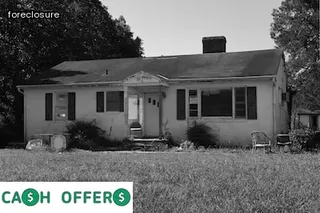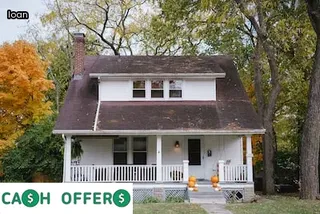The COVID-19 pandemic has caused a lot of disruption to the housing market, especially in New Jersey. To help protect homeowners from foreclosure, New Jersey has implemented a moratorium on foreclosures until April 2021.
This moratorium is meant to provide relief to those struggling with financial hardship due to the pandemic, and gives them more time to catch up on their mortgage payments. This moratorium also provides protection for tenants who may be struggling with rent payments due to income instability or unemployment.
The impact that this moratorium has had on foreclosures can be seen in the number of foreclosure filings across the state. Before the pandemic hit, there were around 1,700 cases of foreclosure filing each month; now there are less than 500 per month.
However, once the moratorium ends, it is likely that New Jersey will see an increase in foreclosures as homeowners are unable to make their mortgage payments and complete the foreclosure process. It typically takes about two months for a full foreclosure process in New Jersey so it is important for homeowners to understand what actions they must take if they are facing potential foreclosure due to financial hardship caused by COVID-19.

When facing foreclosure in New Jersey, it is important to understand the process and what to expect. Foreclosure in NJ can take as long as 6 months or more depending on the lender.
Homeowners must be aware of their rights under the law, including when they can be evicted. During this time, lenders must go through a series of steps such as sending out notices of default, offering mediation options, and filing a lawsuit in court.
If the homeowner cannot make payments or is unable to reach an agreement with their lender, the court will grant a judgment for foreclosure. After this point, the bank has six months to schedule and complete an auction sale where they recover the remaining balance of owed money from the home’s sale price.
Lenders may also choose to pursue other legal actions like deficiency judgments if there are still funds owed after the sale. Knowing all of these potential steps ahead of time can help homeowners better protect their rights and understand what lies ahead during foreclosure proceedings in NJ.
When facing foreclosure proceedings in New Jersey, it is important for homeowners to understand their rights and protections under state law. The foreclosure process can take anywhere from several months to several years depending on the individual circumstances of the case.
It is critical for homeowners to be aware of their rights throughout the process and have a plan for defending against foreclosure. This includes understanding the timeline for filing an answer with the court, filing a motion to dismiss or an objection to the complaint, and having legal representation in negotiating a payment plan, loan modification, or other resolution that avoids foreclosure.
Homeowners should also be familiar with any applicable consumer protection laws that may apply in their particular case. Knowing your rights during foreclosure proceedings will help ensure that you are able to protect your home and financial future during this difficult time.

When it comes to foreclosure actions in New Jersey, homeowners may be able to utilize certain defenses in order to have the action dismissed. These defenses may vary depending on the particular circumstances, but some of the most common ones are lack of standing, breach of contract, and violation of state or federal laws.
Homeowners who believe they have a defense against foreclosure should consult with a qualified attorney who can evaluate their case and provide advice on the best course of action. Additionally, there are also potential legal remedies that could be pursued, such as requesting mediation or filing for bankruptcy.
It is important for homeowners facing foreclosure to understand all their options and understand how long it takes to complete the process so they know what to expect.
When facing foreclosure in New Jersey, it is important to understand the process and timeline. For most cases, a foreclosure typically takes approximately six months from start to finish.
However, the actual timeline may vary depending on the circumstances of the homeowner. It begins with a notice of default issued by the lender when payments have not been made for 90 days or more, followed by the filing of a complaint in court by the lender.
Next, there will be a summons issued to the homeowner which will include a date for an initial hearing at which time they must appear in court to answer questions about their ability to repay their debt. After this, if an agreement cannot be reached between both parties then the property will be auctioned off and sold to pay back any debt owed.
If no buyer is found then the property will become bank-owned and go through the repossession process until it is sold again. Throughout this entire process homeowners are encouraged to consult with experienced legal counsel who can help them navigate all aspects of foreclosure proceedings in NJ and protect their interests.

Preparing for a successful outcome in a foreclosure case involves doing research, being organized and informed, and understanding the timeline of the process. It is important to understand foreclosure laws in New Jersey to ensure that all rights are protected throughout the process.
The first step is to learn about the state's foreclosure process, including who initiates it and how long it typically takes from start to finish. Generally, a foreclosure can take anywhere from several months up to two years or more to complete in New Jersey.
Gaining an understanding of the timeline is essential for formulating an effective strategy for successfully navigating a foreclosure case. Knowing which documents need to be submitted and when they should be filed is also important.
Additionally, consulting with a knowledgeable attorney can help individuals better understand their legal rights and obligations during the process. As part of being informed and organized, individuals should review all documents related to their mortgage loan carefully and keep copies of all correspondence with lenders or servicers in order to document any attempts at negotiation or refinancing options that may have been explored prior to the initiation of a foreclosure proceeding.
Taking these steps will help provide individuals with the best chance of achieving a successful outcome in their foreclosure case.
Navigating real estate laws and regulations during a foreclosure action can be a daunting process for any homeowner in New Jersey. Filing for foreclosure requires meeting all legal requirements and following the specific procedures of the state in which the property is located.
In New Jersey, foreclosures must be initiated by filing a complaint with the court, providing proof of mortgage delinquency, and fulfilling all state-mandated criteria. Depending upon the lender's policy and the particular circumstances surrounding the case, it may take anywhere from three months to several years to complete a foreclosure in this state.
Homeowners should always consult with an experienced real estate attorney to ensure they understand their rights and responsibilities throughout the proceedings. Additionally, individuals can stay up-to-date on changing laws and regulations by regularly visiting online resources provided by local government offices or agencies.
Taking these steps can help homeowners make informed decisions about their financial future during foreclosure proceedings so that they are prepared for whatever lies ahead.

When it comes to foreclosure proceedings in New Jersey, there are statutory deadlines and procedures that must be followed. The lender must notify the borrower of their intention to foreclose no less than 45 days prior to the filing of a complaint in court.
During this time, the homeowner may choose to work with the lender directly or contact a housing counselor that can assist them in understanding the options available. Once a complaint is filed, the homeowner has 35 days to respond in writing before a motion for summary judgment may be heard.
It’s important to note that during this time, if the homeowner has not requested mediation within 15 days of receiving notice of foreclosure, they will no longer qualify. If mediation is successful and an agreement is reached, then it could take up to eight months or more for foreclosure proceedings to complete.
If unsuccessful, then a final judgment will be issued allowing foreclosure proceedings to move forward and finalizing within three weeks or so after that.
Finding the right legal representation for your foreclosure defense can be a daunting task. Knowing how long the foreclosure process can take in New Jersey is an important factor when considering which lawyer to hire.
The state of New Jersey has specific laws and regulations that must be followed for any foreclosure proceedings, so it's essential to find someone who is well-versed in these rules and regulations. To ensure that you have the best chance of success, look for a lawyer who has experience handling foreclosures in your state and a track record of successful outcomes.
When selecting an attorney, make sure they are knowledgeable about state laws related to foreclosure and have a comprehensive understanding of the foreclosure process. Additionally, ask potential lawyers if they can provide references from past cases, so you can get an idea of their success rate with similar clients.
Taking time to research experienced attorneys who specialize in foreclosure defense will help ensure that you have the best possible representation during this difficult process.

The foreclosure process in New Jersey can be long and complex, so establishing a clear timeline is critical for understanding the steps involved. Generally speaking, it typically takes three to six months from the time a Notice of Default is issued until the property is officially foreclosed.
This timeline can vary depending on the circumstances of each foreclosure case. The first step in the foreclosure process is when a lender issues a Notice of Default to the homeowner, which outlines the amount owed and an offer to reinstate their mortgage loan.
Once this notice has been issued, homeowners have up to 45 days to cure their delinquency by making full payment on their loan or coming up with an acceptable repayment plan with their lender. If payment or a repayment plan is not received within this timeframe, then lenders will proceed with filing a Complaint for Foreclosure in court.
After filing in court, lenders must wait for judicial review before proceeding with foreclosure sale of the property. During this time period homeowners may still attempt to negotiate agreements with their lenders or explore other options such as selling their homes through short sales or deed-in-lieu transactions.
Lastly, once all efforts to save the home have failed, lenders will move forward with scheduling a public auction where they will take ownership of the property if no other buyers come forward during that time period. While there are many steps involved in completing foreclosure in New Jersey, understanding and managing expectations based on this timeline can help make it easier throughout the process.
When it comes to facing financial difficulties with mortgage payments, foreclosure can be a daunting reality. However, the duration of the foreclosure process in New Jersey can vary depending on the specific circumstances and the type of loan.
Though foreclosures usually take an average of 6-12 months to complete in New Jersey, some may last longer. To understand this timeframe better, it is important to consider what happens during each step of a foreclosure.
In New Jersey, the pre-foreclosure period begins with a Notice of Default being sent to the borrower when they miss two or more payments. The Notice of Sale must then be issued before the home can be sold at auction which typically occurs after 90 days from the date of delinquency.
When the property is sold at auction it enters into a redemption period where borrowers have up to six months to redeem their loan by paying off their debt and any additional fees imposed by lenders. Once all steps have been completed and if the borrower does not redeem their loan, title will pass to new ownership and foreclosure proceedings are concluded.

It is important to plan strategically to prevent default and avoid the risk of home loss through foreclosure. Knowing how long it takes to complete foreclosure in New Jersey is essential in developing an effective strategy that works best for your specific situation.
Generally, the process of foreclosure can take anywhere from two months to a year or more depending on several factors such as the type of loan, the lender's timeline, and any legal proceedings that may arise. It is important to understand the laws and regulations governing foreclosure in New Jersey as they vary from state to state.
Consulting a qualified attorney should be a part of any homeowner's strategic plan as seeking legal advice can provide invaluable assistance in navigating through the process and understanding potential outcomes. Additionally, exploring options such as refinancing or loan modification may help homeowners avoid foreclosure altogether.
Researching housing counseling services like those offered by HUD can also offer valuable resources and information about preventing default and avoiding home loss through strategic planning. Taking proactive steps early on in the process is essential for protecting your home from foreclosure, so understanding your rights and researching resources available can make all the difference in successfully avoiding eviction from your home.
Facing the potential of foreclosure can be a daunting and overwhelming experience for many homeowners in New Jersey. Understanding the options and timeline associated with this process is essential to helping clients make informed decisions.
Foreclosure proceedings typically take between 90-120 days from start to finish in New Jersey. However, this timeline can vary depending on a variety of factors such as if the homeowner is contesting the foreclosure or other complications that may arise.
It's important for clients to understand that if they are behind on their mortgage payments, they must seek legal counsel in order to understand their rights and options. This includes discussing available government programs such as loan modifications, refinancing, or forbearance agreements which could potentially help them keep their home.
Clients should also be aware of any filing deadlines that may be associated with these programs and take into account when making decisions throughout the foreclosure process. Ultimately, understanding all of these elements can enable clients to make choices that best suit their needs when facing a potential foreclosure in New Jersey.

When it comes to facing a potential foreclosure in New Jersey, there are different types of relief available. It's important to understand the various options and what they entail when considering how long it takes to complete foreclosure in the state.
Homeowners may be able to take advantage of loss mitigation programs, such as mortgage modifications, forbearance agreements and repayment plans. These can help individuals stay in their homes while they work out an agreement with their lender.
There are also short sale and deed-in-lieu options that allow borrowers to avoid foreclosure by selling their home or relinquishing ownership of it. A third option is filing for Chapter 13 bankruptcy, which can provide homeowners with time and breathing room by restructuring debt payments into a court-approved plan.
No matter which of these paths is taken, navigating the process can be lengthy and complicated. It's best for those facing potential foreclosure to seek professional advice from an attorney or housing counselor who can help guide them towards the best solution for their individual situation.
When facing foreclosure in New Jersey, it is important to understand the legal process and all of the steps involved. One of the most efficient and effective ways to do this is by leveraging professional services to get the most out of your legal representation.
An experienced attorney can provide guidance throughout the entire process, as well as help ensure that all paperwork is filed correctly and on time. They can also provide advice on how best to protect your interests and minimize losses.
Additionally, a foreclosure specialist may be able to negotiate with banks or lenders for better payment terms or other options such as loan modifications, short sales, debt settlements, or strategic defaulting. With their expertise and knowledge of the law, they can make sure you understand the process from beginning to end and get through it with minimal stress.
Understanding how long it takes for a foreclosure in New Jersey can also be beneficial when hiring a lawyer as some cases are more complex than others and require extra time.

Working with experienced professionals to mitigate the risk of home loss during a foreclosure action is essential for property owners in New Jersey. It is important for individuals to weigh the pros and cons of different strategies for dealing with a foreclosure situation, including loan modification, short sale, or deed-in-lieu of foreclosure.
An experienced and knowledgeable professional will be able to help individuals evaluate their options and make decisions that are best suited to their unique financial situation. It is also important to stay up-to-date on New Jersey's latest legislation on foreclosures, as this can have an impact on the process timeline.
Working with such professionals can not only help give advice but also provide guidance throughout the entire process, including providing support in navigating deadlines and paperwork associated with a foreclosure action.
The foreclosure process in New Jersey can take anywhere from three to five months, depending on the specifics of the individual case. The length of time it takes for a foreclosure to be finalized depends on many factors, including how long the homeowner has been in arrears on their mortgage payments and any other legal issues that may arise during the process.
If all goes smoothly, the foreclosure could be finalized in as little as three months; however, if there are complications or delays due to legal matters, it could take up to five or more months. In some cases, homeowners may also be able to negotiate a settlement with their lender before the foreclosure is finalized.
This could potentially reduce the length of time it takes for the foreclosure process to be completed.

After a foreclosure in New Jersey, homeowners are typically given a 10-day period to vacate the property. However, the timeline for moving out of a foreclosed home can vary depending on the circumstances.
For example, if the homeowner has entered into an agreement with their lender, such as a deed-in-lieu of foreclosure or other loan modification program, they may have additional time to move out. Additionally, if the property is sold at auction and a third party purchases it, they must be granted access to the property by a court order before the homeowner can be required to move out.
It is important for homeowners facing foreclosure in New Jersey to work closely with their lender to determine what timeline applies in their situation and how long after foreclosure they will need to move out of their home.
Foreclosure is a legal process in New Jersey that lenders use to collect unpaid mortgage debt from a borrower. The length of time it takes to complete the foreclosure process depends on several factors, such as the type of foreclosure, whether or not the borrower has filed for bankruptcy and if there are any other liens against the property.
Generally, it takes between 90 and 120 days for a lender to foreclose on a property in New Jersey. The first step in the process is for the lender to file a complaint with the court and serve notice of the foreclosure on the borrower.
The borrower then has an opportunity to respond to the complaint within 35 days. If they do not, they will be defaulted and judgment can be entered against them by the court.
Once judgment is entered, an auction is held where bidders can purchase the property at public auction. If no bids are made at auction, or if no one pays for their bid, then title passes back to the lender who can either sell or lease it out as they see fit.
The entire foreclosure process may seem lengthy but it does provide borrowers with some rights under New Jersey law including redemption rights which allow you to pay off your entire mortgage debt before foreclosure proceedings take place. Additionally, New Jersey allows borrowers facing foreclosure a chance to pursue loan modification or forbearance options with their lender before foreclosing on their home.
After foreclosure in New Jersey, the homeowner no longer owns the property and it is transferred to a third party. They have 60 days to vacate the premises, unless they are able to negotiate an agreement with their lender.
After that, the lender will take legal action if necessary to evict them from the property. Many lenders also require that homeowners who lose their properties in foreclosure pay all outstanding mortgage payments as well as any costs associated with the foreclosure process.
This can add additional financial strain for those who are already struggling financially. Additionally, there can be significant implications on an individual's credit score following a foreclosure filing in New Jersey.
The impact of this lowered score can affect an individual's ability to qualify for future loans or lines of credit for years after the event.
A: A Judicial Foreclosure in New Jersey can take anywhere from 6 to 18 months, depending on the lending institution. The process begins with the lender filing a complaint with the court, followed by the Sheriff's Sale, and ends with the execution of an official deed to transfer ownership of the property.
A: The process of foreclosure usually takes about six months when handled by the County Sheriff in New Jersey.

A: The length of the process will depend on the complexity of the case, but generally speaking, a Judicial Foreclosure in New Jersey can take from 6-12 months from filing the complaint until obtaining a Final Judgement. This includes any debts that may need to be paid off, any litigation needed to resolve disputes, and providing notice to the Debtor.
A: Generally speaking, a Judicial Foreclosure in New Jersey can take up to six months or more depending on the Receipt, Motions for Summary Judgment, Registered Mail, and Certified Mail that are necessary.
A: The timeline for a Judicial Foreclosure in New Jersey is confidential and can vary depending on the circumstances of the case. Generally, a foreclosure can take anywhere from 6-12 months.

A: The exact timeline for obtaining a Writ of Execution in a Judicial Foreclosure in New Jersey is confidential information, and subject to the privacy policy of the lender. However, depending on if there are adjournments or other delays, it can generally take anywhere from 6-12 months.
A: The length of time it takes to practice law in a Judicial Foreclosure in New Jersey can vary, depending on the complexity of the case and the court's workload. Generally speaking, the process can take anywhere from three months to one year or more.
A: The timeline for a Judicial Foreclosure in New Jersey varies depending on factors such as whether there is an appeal or motion to dismiss filed by the defendant. Generally speaking, however, a foreclosure can take anywhere from six months to two years if all goes well. If there are delays due to appeals or motions, then it could take significantly longer.

A: The typical length of a foreclosure process under the New Jersey Fair Foreclosure Act can range from 3-12 months or more depending on the complexity of the case. This includes sending notice by registered or certified mail, filing motions for summary judgement, attending court hearings and other processes required by law firms.
A: The timeline for a foreclosure proceeding in New Jersey is highly dependent on the specific court process and the individual lender's processes. Generally speaking, a foreclosure may take anywhere between two to fourteen months depending on the use of technology such as Internet, Insurance, Email and Electronic Mail.
A: On average, the entire foreclosure process in New Jersey can take anywhere from 4 - 18 months depending on the complexity of the case. This includes time spent on Discovery, Data collection, legal representation by a Defense Attorney and possible Counterclaims.

A: Generally, it takes about six months for a mortgage lender to obtain an Intent to Foreclose in New Jersey. This timeframe includes the filing of the Complaint, service of process, and any applicable response period.
A: The length of a foreclosure process in New Jersey will depend on the individual case and can vary significantly. Generally speaking, it can take anywhere from six months to two years to complete the foreclosure process when taking into account a loan modification.
A: The exact length of time will depend on several factors, such as the size and complexity of the case. Generally, however, the typical timeline for a foreclosure proceeding in New Jersey is between 6-12 months.

A: The amount of time it takes to complete a foreclosure in New Jersey depends on the complexity of the case and other factors, such as discovery and data. Generally, foreclosure proceedings can last from three to six months, but may take longer if there are motions for summary judgment, registered mailings, or certified mailings.
A: The length of the foreclosure timeline in New Jersey varies depending on the steps involved. Generally, it takes between 8-12 months to complete the entire process from start to finish, including mailings, court hearings, and law firm processes.